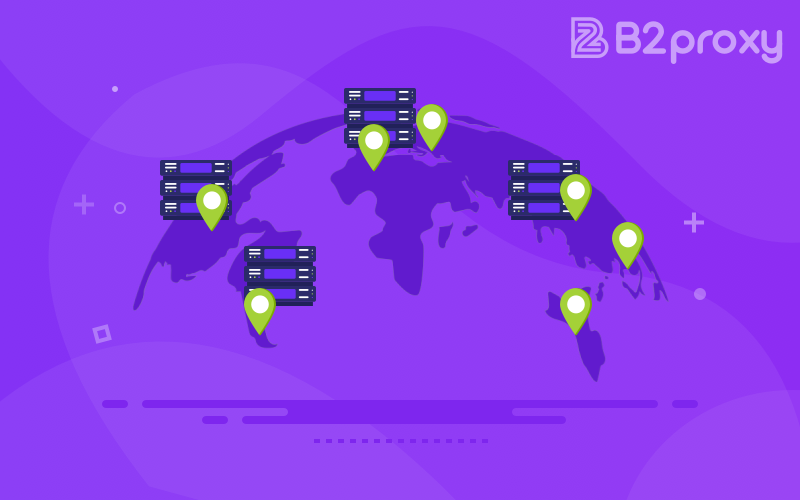How to choose the right proxy protocol for a business scenario: HTTP or SOCKS5?
 June 26.2025
June 26.2025

<p style="line-height: 2em;"><span style="text-wrap-mode: nowrap;">In today's Internet business, the proxy server has become an indispensable tool, but in the face of HTTP proxy and SOCKS5 proxy two mainstream choices, many business leaders are often caught in the "selection difficulties. Today, we will talk about how to choose the right proxy protocol according to actual business needs.</span></p><p style="line-height: 2em;"><span style="text-wrap-mode: nowrap;"><br/></span></p><p style="line-height: 2em;"><span style="font-size: 18px;"><strong><span style="text-wrap-mode: nowrap;">First, know the two "proxies" </span></strong></span></p><p style="line-height: 2em;"><span style="text-wrap-mode: nowrap;">First of all, let's briefly know the two "proxies": </span></p><p style="line-height: 2em;"><span style="text-wrap-mode: nowrap;">HTTP proxy: like a professional web content manager, dedicated to HTTP/HTTPS traffic optimization, can understand the content of the web page request, and can even cache commonly used resources.</span></p><p style="line-height: 2em;"><span style="text-wrap-mode: nowrap;">SOCKS5 proxy: it is more like an all-round courier, does not care what kind of package you send (traffic type), just send things to the destination.</span></p><p style="line-height: 2em;"><span style="text-wrap-mode: nowrap;"><br/></span></p><p style="line-height: 2em;"><span style="font-size: 18px;"><strong><span style="text-wrap-mode: nowrap;">Second, a guide to choosing business scenarios </span></strong></span></p><p style="line-height: 2em;"><strong><span style="text-wrap-mode: nowrap;">Choosing an HTTP proxy when...</span></strong></p><p style="line-height: 2em;"><span style="text-wrap-mode: nowrap;">Your business is mainly web related </span></p><p style="line-height: 2em;"><span style="text-wrap-mode: nowrap;">If your application is mainly HTTP(s) traffic such as web browsing, API calls, etc., HTTP proxy is a more efficient choice. It's like a fast track designed specifically for web pages.</span></p><p style="line-height: 2em;"><span style="text-wrap-mode: nowrap;"><br/></span></p><p style="line-height: 2em;"><span style="text-wrap-mode: nowrap;">You need content filtering or caching </span></p><p style="line-height: 2em;"><span style="text-wrap-mode: nowrap;">HTTP proxies can view and understand what is being transmitted and are suitable for scenarios that require content censorship, ad filtering, or resource caching. For example, corporate intranets often use this proxy to optimize the office network experience.</span></p><p style="line-height: 2em;"><span style="text-wrap-mode: nowrap;"><br/></span></p><p style="line-height: 2em;"><span style="text-wrap-mode: nowrap;">Authentication and logging are important </span></p><p style="line-height: 2em;"><span style="text-wrap-mode: nowrap;">Most HTTP proxies provide well-developed authentication mechanisms and access logging features, suitable for scenarios that require strict control.</span></p><p style="line-height: 2em;"><span style="text-wrap-mode: nowrap;"><br/></span></p><p style="line-height: 2em;"><strong><span style="text-wrap-mode: nowrap;">Choose the SOCKS5 proxy when...</span></strong></p><p style="line-height: 2em;"><span style="text-wrap-mode: nowrap;">Your business needs to support multiple protocols </span></p><p style="line-height: 2em;"><span style="text-wrap-mode: nowrap;">SOCKS5's full protocol support comes in handy if you need to handle various types of traffic such as web browsing, email sending and receiving, game connections, etc. at the same time.</span></p><p style="line-height: 2em;"><span style="text-wrap-mode: nowrap;"><br/></span></p><p style="line-height: 2em;"><span style="text-wrap-mode: nowrap;">You need higher anonymity </span></p><p style="line-height: 2em;"><span style="text-wrap-mode: nowrap;">SOCKS5 does not parse the transmitted content and is only responsible for forwarding it, like a messenger wearing a mask, suitable for scenarios with high privacy requirements.</span></p><p style="line-height: 2em;"><span style="text-wrap-mode: nowrap;"><br/></span></p><p style="line-height: 2em;"><span style="text-wrap-mode: nowrap;">You're using a P2P application or game </span></p><p style="line-height: 2em;"><span style="text-wrap-mode: nowrap;">Many game clients and P2P software natively support the SOCKS5 proxy, which is often more compatible with these applications.</span></p><p style="line-height: 2em;"><span style="text-wrap-mode: nowrap;"><br/></span></p><p style="line-height: 2em;"><span style="font-size: 18px;"><strong><span style="text-wrap-mode: nowrap;">Third, the compromise in the real business</span></strong></span></p><p style="line-height: 2em;"><span style="text-wrap-mode: nowrap;"> In the actual business, the choice is often not either/or:</span></p><p style="line-height: 2em;"><span style="text-wrap-mode: nowrap;"> E-commerce business: the main site with HTTP proxy to optimize web page loading, while using the SOCKS5 proxy to support diverse third-party service access.</span></p><p style="line-height: 2em;"><span style="text-wrap-mode: nowrap;">Data collection business: HTTP proxy is used for simple webpage collection, and SOCKS5 may be used with other tools for complex scenarios (e.g. JavaScript execution).</span></p><p style="line-height: 2em;"><span style="text-wrap-mode: nowrap;">Enterprise IT: HTTP proxy for internal employees to access the Internet is easy to manage, and R&D team may need SOCKS5 proxy for diversified development and testing.</span></p><p style="line-height: 2em;"><span style="text-wrap-mode: nowrap;"><br/></span></p><p style="line-height: 2em;"><span style="font-size: 18px;"><strong><span style="text-wrap-mode: nowrap;">Fourth, other considerations </span></strong></span></p><p style="line-height: 2em;"><span style="text-wrap-mode: nowrap;">In addition to the protocol itself, you should also consider: </span></p><p style="line-height: 2em;"><span style="text-wrap-mode: nowrap;">Performance requirements: HTTP proxy optimization of web traffic may bring performance improvements </span></p><p style="line-height: 2em;"><span style="text-wrap-mode: nowrap;">Cost budget: usually SOCKS5 proxy resources are relatively more expensive </span></p><p style="line-height: 2em;"><span style="text-wrap-mode: nowrap;">Technology Stack Compatibility: check your application and tool chain for which protocol support better</span></p><p style="line-height: 2em;"><span style="text-wrap-mode: nowrap;"><br/></span></p><p style="line-height: 2em;"><span style="text-wrap-mode: nowrap;">There is no absolute good or bad, only suitable or not. It's like choosing a mode of transportation, inner-city commuting may be more efficient with a subway (<a href="https://www.ippeak.com/" target="_self">HTTP proxy</a>), while off-road adventures require the all-terrain capability of a jeep (<a href="https://www.ippeak.com/" target="_self">SOCKS5 proxy</a>).</span></p><p style="line-height: 2em;"><span style="text-wrap-mode: nowrap;">It is advisable to define your core business needs first, and even use both proxies together if necessary. Sometimes, the right "combination" is better than a single choice to meet complex business needs.</span></p>
You might also enjoy









